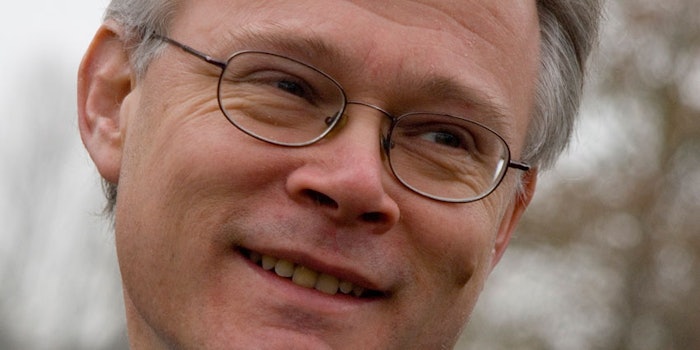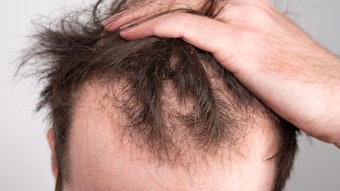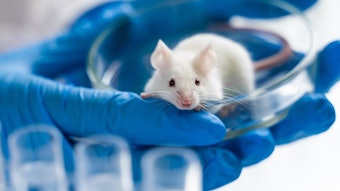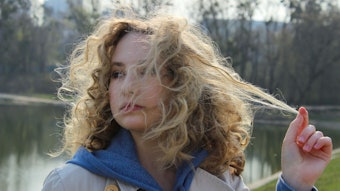
Editor's note: The "Words from Wiechers" series considers the lessons our industry can learn from the late Johann Wiechers, Ph.D. He was an adviser, colleague and leader in the industry until his unexpected passing nearly 10 years ago. Presenting Wiechers's insights is Tony O'Lenick.
In Chapter 52* of his book, Memories of a Cosmetically Disturbed Mind, Wiechers presents his thesis statement: Consumers think that cosmetic firms make outrageous claims and the consequence is that the public does not believe what we claim.
Here, he explores whether this consumer perception of the cosmetics industry as misleading or, "the scum of the earth," as he puts it, is founded.
"The popular science writer Ben Goldacre dedicated a whole chapter in his book, Bad Science, to cosmetics and suggested that it is merely lies what the cosmetic industry (and therefore we, cosmetic scientists, in particular the cosmetic formulators) are conveying because our products don’t deliver on their promises.
"Although he has a point that such products do indeed exist, it is going too far to claim that therefore 'cosmetics is bad science.' But how close is he to the truth if even I do admit that he does have a point? For that, we need to know what exactly good science is and, therefore, how we and differentiate good from bad science.
See related: Words from Wiechers; Much Ado About Nothing
"Enter Michael Shermer, the monthly columnist of Scientific American and founder of the Skeptics Society. He identified ten characteristics in what he called the 'Baloney Detection Kit' by which you can differentiate three types of science. I plan to apply this Baloney Detection Kit to cosmetic science in this ... [column]. We will then see where we end up. I warn you, it has no purpose fooling yourself and being extremely kind to ourselves if others are not returning the favor. The purpose is to see whether they are right or wrong and if so, whether and how we should change.
"In his book The Borderlands of Science—Where Sense Meets Nonsense, Michael differentiates three types of science: real science, borderline science and just plain nonsense. You would think that the boundaries are well-defined but they are not. For instance, initially we thought that the world was flat and at the center of the universe. When Copernicus worked out that this could not be the case, he got himself into great trouble with the church for telling such nonsense. But gradually, his concept moved from nonsense to borderline science to real science.
"You often find that the public opinion and religion greatly influence the perception of what is good science. For a scientist like Michael Shermer, this is unacceptable, which led him to identify these ten characteristics that I will now apply to cosmetic science. We may find that cosmetic science is real science (like chemistry or physics), borderline science (like SETI–the search for extraterrestrial intelligence) or pseudo-science, i.e., not science at all (like ufology, the science investigating unidentified flying objects).
"Taken at large, I do not think that minor points should worry the cosmetic industry. As we do not have that many official university courses where you can study cosmetic science, the scientific credibility aka the reliability of the source is not always acceptable in our industry but normally it is OK (unless you go to the internet where you will see an abundant bunch of self-declared experts). Unfortunately, the consumer does not make this distinction and groups us all together. But that does contribute to the consumers’ perception of our industry.
'Cosmetic science is most of the time a descriptive science and not an explanatory science. Not everything we do may be novel but that does not make it bad science.'
"'Have the claims been verified by another source?' Michael Shermer writes that 'pseudo-scientists typically make statements that are unverified or verified only by a source within their own belief circle.' The lack of verification of the cold fusion is a famous example. But in cosmetics, we are not that much different.
"Everybody working in our industry knows that a manufacturing company will not automatically believe everything what a representative of a supplier says; they want to verify by themselves the claims that are made. They want to test under their own conditions whatever the supplier told them and compare it to their own internal standards. Whether this is because they have been disappointed too often in the past or because they are good scientists, I leave to you to decide. Likewise cosmetic claims are verified by regulatory bodies; maybe not immediately, but definitely when challenged and that is a good thing.
"One thing related to this subject of verification, however, I have heard where I sincerely disagree. A comment made by critics of the cosmetic industry is that we, cosmetic scientists, do not publish in peer-reviewed journals and that therefore our research is not up-to-scratch. People developing the latest car engines or IT software also do not publish their work, as there are often very good commercial reasons for not doing so.
"Whereas papers in the Journal of Cosmetic Science and the International Journal of Cosmetic Science and the IFSCC Magazine are all peer-reviewed, the articles in only some of the trade magazines are also peer-reviewed (Cosmetics & Toiletries magazine, for example). I have reviewed many papers that never made it into print for all of these publications. Nevertheless, a peer-review process is not an objective but a personal judgment. It is not uncommon for two reviewers to have two completely opposing views on a particular paper.
"Sometimes reviewers have personal reason for rejecting a paper, for instance when they work on exactly the same subject. Many papers in the cosmetic industry would simply be rejected because they are nothing more than a description of yet another skin whitener working via tyrosinase inhibition (as I wrote last time). Cosmetic science is most of the time a descriptive science and not an explanatory science. Not everything we do may be novel but that does not make it bad science; but it does make boring reading, so it is not published because of the lack of originality. On this third question, I can only conclude that the cosmetic industry is not any better or any worse than anyone else working in a form of commercial science."
See related: The Term Cosmeceuticals is No Longer Sustainable
This column brings some interesting concepts together in one paper. The key question presented is: are claims on cosmetic products exaggerated? I (Tony O'Lenick) believe that by and large, the cosmetic companies making claims are very conscious not to alienate consumers by making wild claims. In short, they are very concerned with keeping the thesis statement of this article from being true. Specifically, "Consumers think that cosmetic firms make outrageous claims and the consequence is that the public does not believe what we claim."
There is one very important concept that makes the cosmetic industry different from the drug industry: we may be able to fool a consumer with wild claims once, but getting them to buy again will be near impossible if we destroy trust in our products. Also, unlike drugs that require a prescription to treat a disease, cosmetic products can easily be changed at the whim of customers. You need to satisfy the consumer to keep them buying. Consumers do not read peer-reviewed articles. They may convince the consumer to try a product based upon some exaggerated claims, but they will not come back to buy again if the feel they were hoodwinked by the claims.
One last point where consumer confidence could be damaged by overstated product claims is the product's price. Many consumers enjoy their cosmetics but if enough of them don’t enjoy their purchases, they will not buy again.










